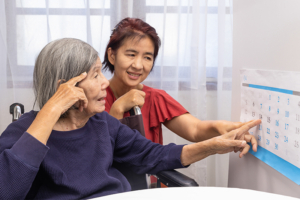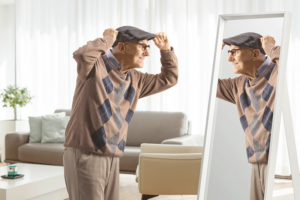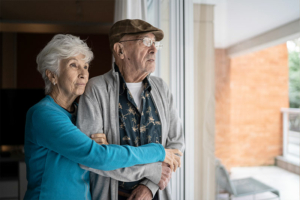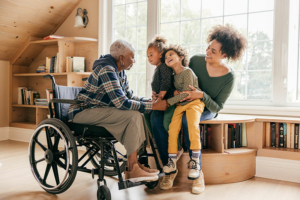How to Successfully Balance Managing Care for Two Parents

If you’re managing care for two parents, these tips will help you balance their unique needs.
Anyone who has looked after an aging parent can fill you in on how overwhelming it can be. But managing care for two parents at the same time, balancing between two unique sets of needs, schedules, and personalities? If you are in this position, it might feel as though you are struggling to stay on top of everything, and there are several important considerations to keep in mind to safeguard your wellbeing and ensure you’re there for both of them in the long run.
Understanding the Signs of Burnout When Caring for Two
Burnout can catch anyone off guard, but it often comes faster when you are managing care for two parents. Perhaps one parent needs help getting to frequent medical appointments, while the other needs daily assistance with meals and personal care. When feelings of exhaustion, irritability, or mental drain become constant, it might be a sign that caregiver burnout is setting in. It is vital to identify these signs early and make a plan to alleviate stress to protect yourself from reaching a breaking point.
Handling Conflict Between Elderly Parents
When caring for both parents, there may be times when they disagree with each other. Longstanding disagreements, frustrations, and differences in opinions can resurface, and your stress level may intensify those tensions. In these moments, attempt to remain unbiased and offer a listening ear to both sides without assuming the role of referee. You might recommend they take a breather or take some time apart if the situation allows, to let emotions settle. Encouraging them to discuss their feelings freely, without judgment, will often defuse conflict. If disagreements become a consistent challenge, consider involving a mediator or a counselor who specializes in elder care conflicts. Outside support can help both parents feel heard while reducing the strain on you as the caregiver.
Setting Boundaries for Your Sanity and Wellbeing
Boundaries are crucial when looking after two individuals with different needs. Though it might feel hard to take a step back, setting small boundaries can make a major difference in protecting your energy and patience. Begin by establishing regular breaks, even if it’s just a few hours every week with the help of respite care or other loved ones. Recognize that boundaries are not about distancing yourself; they are about ensuring you are able to give them the best care possible without becoming overwhelmed.
Connecting With a Supportive Community
Taking care of aging parents can feel isolating, and quite often it is difficult to find someone who understands the additional challenges of dual caregiving. Connecting with other caregivers in similar situations can provide relief and encouragement. Look for caregiver support groups in your area or online where you can seek advice, find camaraderie, and share experiences.
Embrace Self-Care
Caring for both parents doesn’t leave a lot of time for yourself, but self-care is more important than ever in these circumstances. Even small moments, like a walk around the block or a quiet coffee break, can energize you and help prevent burnout. Remember, when you take time to care for yourself, you’re better equipped to care for your loved ones.
Knowing When It Is Time to Take a Step Back
There may come a point when you recognize that proceeding as the sole caregiver is no longer sustainable for you or beneficial for your parents. If being a caregiver is consistently having an effect on your relationships with others, physical health, or mental wellbeing, it could be time for you to consider stepping back. Transitioning to professional support, such as in-home help, can provide a balanced solution. Remember, opting to step back doesn’t mean you are abandoning your parents. It means you’re recognizing their evolving needs and choosing the best path forward to ensure their safety as well as your well-being.
Finding Balance on a Complex Journey
Let Responsive Home Care help you help your parents. We provide customized in-home care solutions in Deerfield Beach, Fort Lauderdale, Weston, and throughout Broward County that will fit the needs of older loved ones and give you the healthy balance you need. Reach out to us any time at 954-486-6440 for more information about our services.











